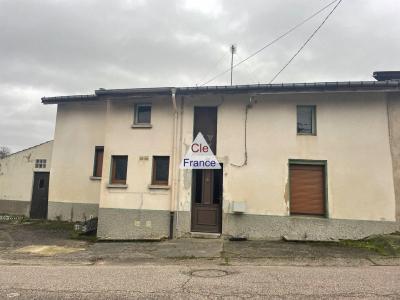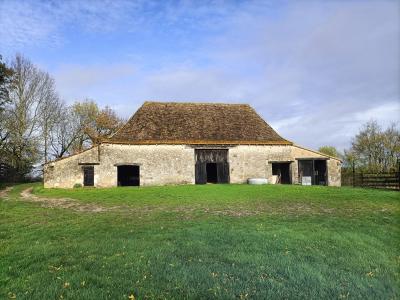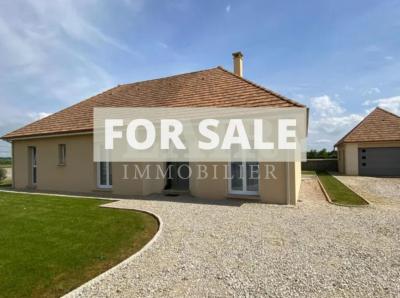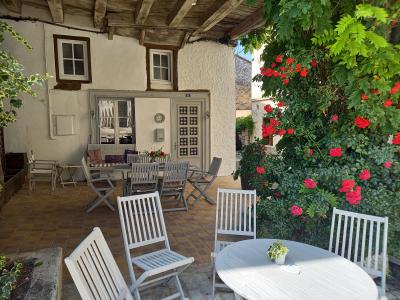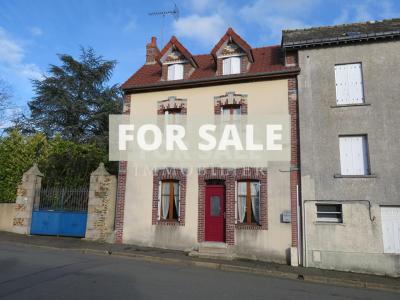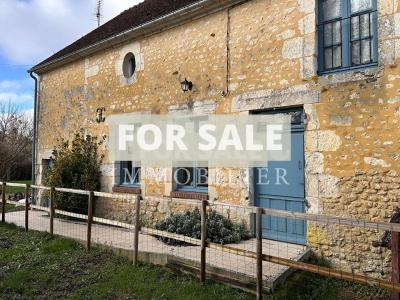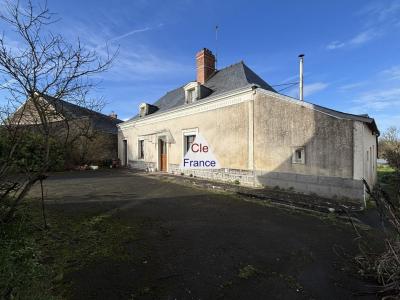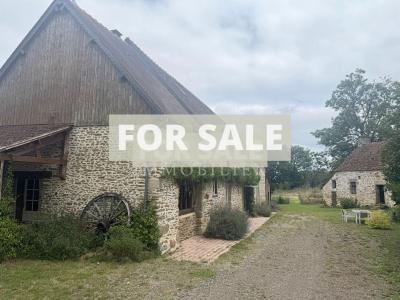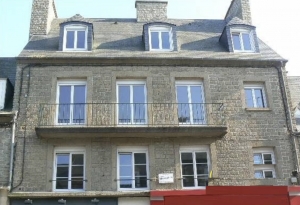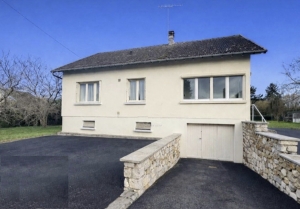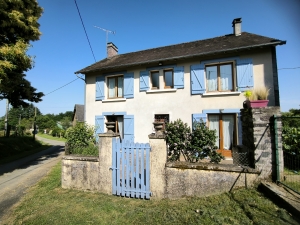Club Clé France: Home & Car Insurance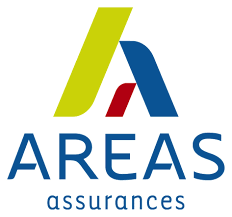
We have been working with Areas Assurances for many years and more specifically with James Shaheen, who along with his team offer a friendly, professional service and they also speak very good English!
Whether your house in France is your main or secondary residence, an apartment or a chateau, if you're the owner or the tenant, we can insure you.
French home insurance differences -
Contrary to arrangements in the United Kingdom where house and contents insurance are organised separately, in France they are combined in one policy which makes life very much easier and your public liability is always included.
If you a general Insurance question or a more pressing and pending need, in the process of buying a property for example, then contact James direct using the Enquiry Form.
Please complete our Enquiry Form Below for more information.
When looking for a quotation from a French insurance company, in English, that is suited to your specific insurance needs? or just looking for advice / information about the insurance system in France? then...
James and his English speaking insurance team are proud to be of service to you.
Cle France in partnership with James commit ourselves to providing you with excellent service you can rely on.
Car, House (Building and Contents Insurance), Areas Assurances offer the security of a strong French business with the convenience of an English speaking insurance team, so your quotations can be provided in English.
James and his team look after your Insurance requirements.
ARÉAS Assurances
Who are we ?
Aréas offers increasingly comprehensive personal protection, property protection and long-term retirement savings solutions for individuals, professionals and companies.
7th largest network of general agents in France, Aréas Assurances is an independent group made up of the mutual insurance companies Aréas Dommages and Aréas vie. With nearly 500 offices, Aréas provides its customers with effective services thanks to a relationship of trust and proximity.
Why choose Areas Insurance?
Advice & expertise
A conviction drives our choices: to promote the offer of advice and expertise for the benefit of our customers who expect a human, available and competent presence.
Close to you
Represented by the 7th network of general agents in France with nearly 500 agencies, our local roots are historic. Aréas provides its customers with effective services thanks to a relationship of trust and proximity.
A Solid Group
Aréas Assurances is an independent group of mutual insurance companies offering increasingly comprehensive protection and retirement savings solutions.
A Complete Offer
Whether you are an individual, a self-employed worker or a business manager, come and benefit from effective protection to protect your property, your loved ones, your teams or refine your heritage strategy.
Contact us and let us know your specific needs so that we can provide you with a detailed quotation suited to your family's specific requirements.
AREAS Assurance
James Shaheen.
Club Clé France: Legal Guide to French Succession Law and Inheritance Tax

We are proud to work in partnership with Ashton KCJ - Legal services. If we think our clients need further legal advice or have a specific legal question that needs solicitor involvement when buying or selling a property in France we can recommend...
Matthew Cameron and his team for expert advice.
Original article supplied by Ashton KCJ - Legal Services.
Introduction:
Subject to limited restrictions, English law allows you to leave your estate to anyone of your choice. In France, protected heirs – normally your children – will have a fixed right to at least a minimum interest in your estate. Your surviving spouse is a protected heir to a certain extent. Other relatives or unmarried partners are not protected heirs. Thus you cannot cut your children (which includes adopted children and those from previous relationships) out of your estate under French law. The age of the children is of no relevance. Step-children are not protected heirs.
If at the date of your death you live in France, all of your worldwide assets (except land and buildings outside France) are subject to the rights of protected heirs. If you are not domiciled in France, this only applies to land and buildings in France.
What constitutes 'domicile' for these purposes is an issue that needs to be addressed on a case by case basis – not least because the English definition of the word 'domicile' differs from the French definition. Certain other jurisdictions, such as Spain, do not make the same distinction between land and buildings and other assets, so again a more detailed analysis would apply if you live in Spain.
The minimum amount due to protected heirs is known as the legal reserve, the remainder being the disposable portion. If a child predeceases, having left children of his own, those children would share the amount that would have passed to their parent had they survived. The legal reserve must go to the protected heirs, regardless of the wishes of the deceased. This is as follows:
• One child: the reserved portion is half of the estate
• Two children: the reserved portion is two-thirds of the estate divided equally
• Three or more: it is three-quarters of the estate divided equally between them.
If a child predeceases leaving no children of his own, he is treated as not having existed, and his share is distributed between the surviving children of the testator. If there are no children, but there is a surviving spouse, then the spouse is able to take all of the deceased’s estate, in preference to the deceased’s parents.
There are circumstances where people can renounce future interests. There are various possibilities, including the right to enter into a formal agreement with the family under which you can, as a potential beneficiary, forego any inheritance to which you may have an entitlement in the future (for example in favour of your own children). Any steps to renounce are very burdensome.
There are specific formalities to address for such issues, and as such it would be important to consider carefully the procedures as well as the aim, to establish if such an option would be suitable.
Another area of concern is where a couple buy a property in France, and one or both of them dies leaving minor children domiciled in England. For various technical reasons, it can prove difficult to sell, mortgage, let or otherwise dispose of the property until the youngest child turns 18. It would be necessary to apply to the English court to obtain authority to dispose of the property.
Another difficulty is where a couple remarry, having children from previous marriages who do not get on with their new stepfather or stepmother. On the death of the first spouse, the survivor ends up owning the property together with the children of the partner’s former marriage. Possible methods of avoiding these difficulties include purchase en tontine and purchase via a French company.
If a property is owned en tontine the entire property will pass to the survivor, as if it were owned in the survivor’s sole name from the moment of purchase. None of these methods will necessarily give an absolute guarantee that the survivor will inherit all in place of the children – there may often be situations where those children could challenge on the grounds that they have been disinherited and not accorded the rights granted to them by French law.
Lifetime gifts:
For the purposes of calculating the disposable and reserved portions, all gifts can be added back into the estate regardless of how long before death the gifts were made, and regardless of the intention of the gifts. Having calculated the reserved portion, if the value of the estate is inadequate, then a clawback claim can be made against the gifts. The claim is made against the most recent gift first, and so on. Gifts could include gifts made into trust. In other words, gifts made years before the donor dies could be reclaimed under French law.
Matrimonial property rights:
Under French law a marrying couple enter into a matrimonial contract which will affect the way their property is owned. Different forms of contract exist, making the position unlike that in the UK.
Separation of assets (séparation de biens):
Under this system, any asset registered in one spouse’s name is considered to be owned by that spouse. Any assets registered in joint names are considered to be owned equally. A couple married in the UK (or in most other common-law countries such as the Republic of Ireland) are considered to be married under this regime in French law in default of a specific marriage contract. It means that on the death of one spouse, the protected heirs can make a valid claim against all assets registered in the name of the deceased spouse; and 50% of many assets registered in joint names.
Universal community (communauté universelle):
This system involves all of the assets belonging to the couple (usually with the exception of certain personal items such as clothing) being placed in community ownership. A British married couple can enter into such a contract in relation to their French property. They may also choose to include a special clause which allows all French assets to pass on the first death to the surviving spouse without the payment of French inheritance taxes, thus effectively avoiding French succession law. It should be noted that a change of matrimonial regime is not effective against the rights of children of previous relationships.
Joint ownership of property:
There are two ways to own French property jointly:
• en indivision (tenancy in common); and
• en tontine (similar to a joint tenancy under English law)
It is very important to appreciate the significant differences of these methods of ownership.
Ownership en indivision:
You each own your half (or other specified amount) of the house, which on your death devolves according to French succession law. This is how most French lawyers put your property into joint names in default of specific instructions to the contrary, although it can have major disadvantages. If a couple owned property en indivision and the deceased had children from a different relationship, the survivor would end up owning jointly with step- children. This may of course be entirely what you wanted – for example where each had two children from previous relationships, then on the death of both of them the French house could – with suitable estate planning – be held jointly between the four in equal shares.
Ownership en tontine:
A tontine clause works to ensure that the survivor of joint owners will own the house absolutely. It can only be inserted at the time of purchase and cannot be added in afterwards. This is rarely used in France other than by British couples, and you may have to be very insistent with the notaire who may regard it as a fraud against your children, even though it is perfectly legal. In general, if tontine ownership is the most suitable option for you we will be able to reassure the notaire that we have explained all of the advantages and disadvantages of owning property in this way.
Under a tontine, the surviving spouse is deemed to have owned all the property from the beginning and takes it all. The survivor then has complete freedom to dispose of the property as he or she wishes.
However the sale of a property when both parties to the tontine clause are alive is only possible if both consent; if one declines to sell, the other cannot force the sale. In the event of a matrimonial dispute, a court can have difficulty making an order in relation to the property because so long as both parties to the tontine are living, there is uncertainty as to who is the owner. A court could therefore only order a sale by both parties.
As to the French inheritance tax position, if there is a large difference in the ages of the parties to the tontine, (or if there are other reasons whereby one party has a reduced life expectancy, or if the parties contribute unequal shares of the purchase price), the French tax authorities might try to classify the tontine as a gift and tax accordingly. The children of the first to die may also use such a difference in life expectancy as a reason to challenge the tontine structure.
On the death of the second spouse the children of that spouse will inherit. If they are children of both spouses they will, in effect, have 'lost out' as they will receive their tax-free allowance (abattement) only in the estate of the second parent to die instead of receiving an allowance in the estate of each parent. This point is unlikely to be of concern if the property in France is only of a moderate value.
If the second person to die had no children of their own, and intended simply to leave everything back to the children of the first to die, then they will have been substantially disadvantaged – had they inherited from their natural parent, then preferential tax rates would have applied, yet by inheriting from their step-parent they would have to pay French inheritance tax at 60%.
The situation is not the same with an unmarried couple: while the tontine would still work to pass the property to the survivor, the inheritance tax position would not be as for a surviving spouse.
Unmarried couples:
Unmarried couples have the major problem of inheritance tax being applied at a rate of 60% with the minimum tax-free allowance on anything that the survivor inherits from the deceased.
PACS and CPA:
The 'pacte civil de solidarité', or PACS, is a cohabitation agreement for unmarried couples, whether a same-sex or heterosexual couple. It has been in force since 1999.
There is no inheritance tax on the survivor of a couple in a PACS; they will be allowed to succeed to a tenancy in the name of the partner where that partner dies or deserts the home; they can be jointly liable for debts incurred by either of them for their daily and household needs; they can have a joint entitlement to French Social Security and other benefits.
It should be noted that the PACS does not confer any additional inheritance rights on the surviving partner and other steps such as tontine ownership will still need to be taken to ensure that the property passes to the survivor on the first death. Only French residents or French nationals can complete a PACS.
Up until recently, France has not recognised an English Civil. Partnership Act agreement (CPA), and therefore a same sex couple having completed a CPA in the UK would have suffered substantial discrimination in relation to assets in France or passing under French law. This position has now changed, such that no inheritance tax will be applied to any assets passing under French law between partners having completed a CPA.
Furthermore, it should be stressed that just as for the position under a PACS, the surviving partner under a CPA does not take any automatic rights of inheritance from his or her deceased partner. Thus specific measures will need to be anticipated to allow for the surviving partner to inherit, such as Wills, inclusion of a tontine clause in the purchase deed, constitution of a company or such other options as may be suitable.
Wills:
If you die without an English or a French Will, your estate devolves under the French laws of intestacy. If you leave children or grandchildren, they will receive all of your assets, except that your spouse has a life interest (and can use the income) in one quarter of the estate, or may take one-quarter absolutely, depending on the circumstances. If there are no children, then the assets will pass to a surviving spouse, parents, grandparents, brothers, sisters, aunts etc. The rights of a surviving spouse do not apply if the couple are divorced or legally separated.
By virtue of certain international legislation, British Wills are valid in France, although it may be preferable to complete a separate French Will for your French estate (and again this may be your whole estate if you move to France permanently). It is usually advisable to have two Wills if you have assets in the UK and in France. Trying to prove a French Will in the UK, or an English Will in France may mean that the process will be slower and more expensive. The concept of probate does not exist in French law and property passes 'automatically' on death to the heirs. Nor does France recognise trusts, so as well as translation of the document into English, the notaire may require clarification of the actual effect of the Will.
You should always use lawyers experienced in French law and English Law to make your French Will; do not try to make a home-made Will as such documents often turn out to be defective. If your Will is only to cover your French assets, this must be made crystal clear in the new Will; otherwise it may read as being your 'last will and testament' covering all assets worldwide.
It is important to consider various points of French, English and international law when your Wills are being prepared, to ensure that they will be completely valid: indeed depending on their form and content, issues such as how they are written, whether they are witnessed and where you are when they are completed, can have an impact on whether they are in fact valid.
It is also important that the two Wills do not overlap, and that one does not revoke the other. We have detailed experience in preparing French and UK Wills, and indeed are happy to work alongside your own existing UK solicitors if you would rather they keep your UK Wills. We would of course also be delighted to prepare both your English and French Wills for you.
The succession process:
If there is an inheritance tax liability a 'déclaration de succession' must be filed within 6 months of the death (12 months if the deceased died outside France) to avoid possible tax penalties. If the deceased was deemed UK domiciled on death, then the notaire will require a Grant of Probate, which itself would need to be translated for use in France.
Trusts in France:
One major complicating factor for applying an English Will in France is that it will inevitably contain trusts. Complications and tax consequences can flow from any situation where a trust has an impact in France. This impact could be the property held in a trust, or indeed the location of the 'settlor' (the person who creates the trust), the trustee, or any of the beneficiaries. Complications can arise on any sort of trust, not just Will trusts.
It is, therefore, rarely beneficial to anticipate using trusts as a method of ownership of property in France.
Company purchase:
Shares are not classed as real property, even if the company owns real property. Consequently in limited circumstances a possible way to avoid the rules of French succession law applying to the estate of a non-French domiciliary is to place all French real property into a corporate structure. However there are potential disadvantages to this form of ownership of which you may need to take account. You should therefore only consider this form of ownership structure with full advice beforehand to ensure it is the most suitable option.
There can be a number of potential tax problems arising from such structuring. If you own shares in a company which owns a French house, you do not own a house in France, the company does. All you own are the shares in the company. Therefore, when you die, the ownership of the house does not change; it is the shares which change ownership, and succession law applies to these shares as items of personal property, so that they will pass in accordance with the succession law rules of the country where you are domiciled, or permanently resident up to the time of your death.
However it is important to note that while the strict French inheritance rules can normally be avoided, so that the shares can be left to anyone, French inheritance tax is still payable on them as if there were a legacy of French real property to that beneficiary.
Thus if the beneficiary is not related to the deceased he or she will have to pay inheritance tax at 60% against the value of the proportion of the property that the shares represent.
Purchasing through a non-French company:
Rarely will it be suitable to buy a French property through a UK company. There are many tax disadvantages, including the fact that a UK company cannot be 'fiscally transparent' and so will always be subject to corporation tax. There are often adverse capital gains tax consequences when the property is sold. Care must be taken to avoid the imposition of an annual 3% tax charge, calculated by reference to the value of the French asset. You will also be subjecting the company to dual accounting and tax declaration obligations.
Shareholders who have the use of the property may be liable to tax on the 'benefit in kind'. UK resident purchasing in a French company The use of a commercial company, which will be subject to French corporation tax, will have consequences similar to those for a UK company. There are however a number of French forms of company that are not treated as commercial trading companies.
Most commonly known among these is the SCI (société civile immobilière), which is fiscally transparent, so that liability for tax on the company’s income and gains falls on the shareholders.
The main advantages of using an SCI, if a company has to be used at all, are that:
• French succession law is avoided if the shareholder dies domiciled in the UK
• the company is not subject to the annual minimum payment of French corporation tax and the shareholders benefit from the favourable tax treatment of capital gains realised by individuals.
However care needs to be taken from a UK perspective – the shareholders should check with their local tax office in the UK to establish how any revenue would be assessed to UK tax.
French inheritance tax:
French inheritance tax is paid by each beneficiary (not by the deceased’s estate) by reference to the value received after deduction of all liabilities. Rates and allowances vary between each class of beneficiary. This means that where a deceased’s estate is split between say, surviving spouse and children, or perhaps children and step- children, then the amount each party would inherit may vary substantially, as the levels of the tax-free allowance and the rates of tax applicable can be completely different.
If you die domiciled in France, French inheritance tax is payable by each beneficiary on their share of your worldwide assets. If you die domiciled outside France, then only your assets in France are liable to French inheritance tax.
A transfer on death between spouses and members of a PACS or a CPA is exempt from inheritance tax.
French inheritance tax is due on the registration of the declaration de succession. But delays or payment by instalments can be obtained from the French Revenue, if necessary, although interest will be charged. French inheritance tax varies from 5% to 60%, depending on the proximity of relationship between the deceased and beneficiary. The tax is personal to each beneficiary, and the rates and allowances vary between different classes of beneficiary.
Surviving children and parents:
The rates of French inheritance tax payable by surviving children or surviving parents will vary between 5% and 40%, the calculation being made on a stepped scale by reference to the value of the legacy each beneficiary inherits.
The thresholds for the tax bands are regularly updated in the annual French finance legislation. We retain a copy of the current tax bands, along with the amount of the initial tax-free allowances which are also reviewed annually.
It should be noted that children and step-children are not treated in the same way. Unless the step-children have been adopted by the deceased parent (which is not always possible, and we can discuss this with you) then any legacy they may take would otherwise be subjected to the maximum rate of inheritance tax in France, as they would be considered strangers in blood.
Other beneficiaries:
After an initial tax free allowance (which is substantially lower than that offered to surviving children) brothers and sisters are currently taxed at a rate of 35% on the first band of an inheritance, and 45% on the remainder. Relatives to the fourth degree are charged at a flat rate of 55% with a tax-free allowance that is again lower than that offered to siblings. Relatives above the fourth degree or other beneficiaries who are not related to the deceased by blood or marriage pay a maximum rate of 60% with a minimum level of tax-free allowance.
Lifetime gifts:
Lifetime gifts may be a tax-efficient way of disposing of your assets. Rates of tax and allowances are generally the same as for inheritance except certain allowances (such as that available to brothers and sisters), and there are certain other allowances depending upon the relationship between donor and done.
Furthermore, in the event of a lifetime gift, there is a tax liability on a surviving spouse or the survivor of a couple having completed a PACS, which differs from the position on death.
EU succession rules:
The European Union has been working to simplify the administration of estates where people die owning property in more than one European member state. It is intended that starting in 2015, a person will be able to nominate the law of the country of which they are a national to govern the administration of their whole estate across the entire European Union.
While, the UK has not ratified the treaty, it is likely that British nationals will be able to avail themselves of that. However, it is apparent that these rule changes will not affect the tax position. Care must be taken when attempting to pass a French estate in accordance with English rules. In any event, any rule changes will only take effect in 2015 at the earliest, and it is prudent to plan for what could happen before then. It is yet unclear how a French notaire would actually deal with a succession if it were to be administered under English law, especially given that France still does not recognise trusts.
There is much to be resolved before any opportunity may arise for a person to subject his or her estate in France to English law. In the meantime, it remains important to plan for the devolution of a French estate in accordance with the rules of French law.
Want to contact Ashton KCJ ? - then simply complete the Enquiry form below:
The information that you give and that we obtain through you using this website may be used by this Company and by our partner companies only for purposes in connection with your use of this website and for marketing activities of this Company and partner companies. By using this site you confirm your consent to this. If you do not want to receive any marketing information from this Company and/or our partner companies then please notify us.
Ashton KCJ is authorised and regulated by the Solicitors Regulation Authority (Recognised Body number 45826). The information contained in this guide is of a general nature and specific advice should be sought for specific situations. We believe the information to be correct as at the time of publication, February 2013. While all possible care is taken in the preparation of this leaflet, no responsibility for loss occasioned by any person acting or refraining from acting as a result of the material contained herein can be accepted by the firm or the authors.
For everything you need to know about French property for sale visit www.clefrance.co.uk
Club Clé France: Legal Guide to Buying French Property

We are proud to work in partnership with Ashton KCJ - Legal services. If we think our clients need further legal advice or have a specific legal question that needs solicitor involvement when buying or selling a property in France we can recommend...
Matthew Cameron and his team for expert advice.
Original article supplied by Ashton KCJ - Legal Services.
Introduction:
This is a simplified guide to the process of buying a property in France. While all reasonable endeavours are taken to ensure that it is correct at the time of publishing it does not purport to be an exhaustive analysis of the relevant laws as applicable to you.
We trust that it will, however, provide you with sufficient background information on French law to help you in your purchase or sale, and will lead you to seek specific legal advice and guidance from us regarding your circumstances.
If you are looking to purchase a property in France, it is imperative that you give adequate consideration to the implications of French and UK inheritance law and tax as there can be a number of complications on either side of the Channel, depending upon your personal circumstances.
Furthermore, even at the time of purchase there are a number of points that you should bear in mind for the future, should you need to sell the property. Certain steps that you take now may assist the sale process, and especially the tax implications of a sale, so we would strongly recommend that you consider reading the section on Selling a French property.
Finding your property:
You may already have identified the property that is right for you. If not, you are on the right website as Clé France have a large selection of stunning properties in great locations. When you are looking to buy, you may give some thought to resale potential. This may be important in future years, especially if you would possibly anticipate selling to French or other international buyers whose tastes may differ.
When visiting a property through an Agent, it is common practice for them to accompany you on viewings. You may not be given the property address or details of the seller. Do however check that they have a valid mandate to sell this particular property, if you are viewing through Clé France everything will be fine.
The only document you should be asked to sign at the point of visiting a property is a 'bon de visite', which is only to confirm that you saw a specific property through that Agent. This does not constitute any contract to purchase; you should be wary of any other document, and if in doubt, fax a copy to us for approval. A reputable Agent would not object to this step.
Funding and mortgaging:
If you need to raise funds for the purchase, you can either mortgage your English home or the French property being purchased. Each method has its pros and cons, and again this depends on your preferences and circumstances.
French lenders may lend up to 80% of the purchase price, sometimes more. Life assurance cover is usually required – and included in your monthly repayments – which must be assigned to the lender for the duration of the loan. It is advisable to apply for a mortgage at the outset and to declare your requirement for a mortgage in the purchase contract prior to signature. You will need to ensure that you are fully aware of the terms of the mortgage, which we can discuss with you if required. There can, for example, be hidden costs such as a charge for obtaining clear title once the mortgage is paid off.
Clé France recommend an International Mortgage Broker in the UK as well as Tim at STAG Mortgages if you are looking to re-mortgage your current borrowing in the UK to fund a house abroad.
There are strict lending criteria in France, that restrict the amount of available finance – you cannot normally borrow more than an amount that would result in one-third of your gross monthly income going to debt repayment.
Currency exchange / funds transfer:
You may find that it is prudent to discuss currency exchange through specialist money transfer companies. Such companies should be able to negotiate better rates of exchange between Sterling and Euro than may be offered by your bank.
They will often be able to book rates to mature at a specified future date, or agree a rate at which a currency transfer can be made. Care does need to be taken in this respect, given that when you sign a French purchase contract, the exact completion date is unlikely to be fixed. We can recommend one or more such companies for you if required.
Care always needs to be taken here to ensure that the terms are suitable. Whether you contact such a currency house or not, you should anticipate that it will take several days to ensure funds transfer from your account to the notaire’s.
Clé France and Key Currency work hand in hand for all its business currency needs and recommends Client's use them too.
The purchase process:
As in England and Wales, the purchase of French property is achieved in two main stages.
The first contract is often prepared by the Agent and you may be asked to sign it very quickly following acceptance of your offer. Clé France will allow you time to check the contract. In most instances, we can carry out this work at very short notice. This should also allow you time to organise a survey of the property – preferably prior to completion of the contract – Clé France can put you in touch with surveyors and property experts.
The second stage involves signature of an 'acte de vente' or deed of sale, at which point ownership of the property is transferred to you as buyer and the full amount of the purchase price and notaire’s fees are paid. Notaires frequently overestimate their fees in advance of completion. They then require payment of this inflated amount, making a reimbursement of the excess following completion of the registration process, several months after the sale is finalised. The exception to this is in relation to new build properties, when completion may take place well in advance of actual delivery of the property to the buyer and when only a proportion of the price is paid.
If you are selling your existing property and moving to France on a permanent basis you should bear in mind that it may be extremely difficult to synchronise the sale and purchase in two different jurisdictions. It is therefore generally advisable to have some form of contingency plan. This may be your ability to purchase the French property from other resources, or to rent a property between your sale and purchase.
The initial contract:
Some contracts include English translations, but these are not always accurate, Clé France agent contracts are very good but if you have a specific requirement/concern then speak to us. If there were any future disputes as to the terms of the contract the French version would prevail. Therefore any translation can only ever be treated as a guide. Having French documents translated into English will not ensure that they contain all appropriate clauses. If a dispute arises, you may have to instruct an avocat to resolve any problems – a notaire would take no further part if the parties were not in agreement.
Types of contract:
Contracts used for the sale of existing properties fall into three main categories: the 'promesse de vente', the 'promesse d'achat' and the 'compromis de vente'. You need to be careful that any documents you are invited to sign are suitable.
The most common form of contract is the 'compromis de vente', a bilateral contract which binds both parties to complete a purchase subject to the satisfaction of certain conditions beyond the control of buyer and seller, against the risk of sanctions for an unjustifiable failure to complete.
The 'promesse d'achat' and the 'promesse de vente' are unilateral contracts, rather like options, whereby you or our seller respectively enter into a commitment to sell or buy, but the other party is not bound. In the case of a 'promesse de vente', you may therefore be able to withdraw from the transaction before completion, although you may lose your deposit in doing so.
New-build contracts:
Contracts for the sale of new properties that are as yet incomplete, or properties being sold on a 'leaseback' scheme, differ from those used for the sale of existing properties in that they are subject to strict laws for the protection of the consumer.
Typically, you will be required to sign a reservation contract, and then a particular form of purchase deed know as a 'vente en l'état futur d'achèvement', or future completion sale. This is normally signed before the building work has finished. You take ownership of everything that has been built by then, and the remainder as work progresses. Various guarantees as to completion must be included in this form of transaction.
Please see our separate guide on new build properties.
Contract conditions – conditions suspensives:
A French contract should contain conditions 'suspensives'; special conditions which, if not satisfied, will render the contract null and void and entitle you to withdraw from the contract and recover your deposit. These include there being no adverse planning restrictions or third party rights which might materially affect your enjoyment of the property; no existing mortgages affecting the property; and no claims upon the property by the local authority or the French State.
Furthermore, there can be a condition that you obtain a mortgage. Provided you satisfy certain formalities, if you do not receive a mortgage offer you can withdraw from the purchase and have your deposit refunded.
We will ensure appropriate conditions 'suspensives' are included in the contract to enable you to be released from the contract without loss of your deposit if the stated conditions are not satisfied. The mortgage condition will normally include a time limit within which you must apply for your mortgage advance, and that so far as you are aware there is no reason for the loan to be refused.
If you fail to do so the condition 'suspensives' will be deemed to be satisfied and you could not subsequently rely upon it to withdraw from the transaction if for any reason you find yourself unable to raise the finance to proceed.
As mentioned above the contract will be completed subject to various conditions that must be satisfied prior to the sale being finalised. French law does not recognise the concept of 'subject to contract' and, it is normal to sign the contract before any searches and enquiries are made by the notaire, or before a mortgage advance has been agreed.
It should not be necessary to pay a deposit before signing the contract, and it is not wise to pay any money direct to the seller. If you are convinced that you will lose a property if you do not show your good faith as a potential purchaser, a notaire may be prepared to act as stakeholder for a small deposit. Agents can receive deposit monies provided they hold a Carte Professionnelle or licence which is only issued by the local authority upon proof that the Agent holds minimum insurance cover. Whether held by the Agent or notaire, the deposit will not attract interest.
It is wise to obtain a structural survey from a qualified surveyor with an intimate knowledge of local property and building methods to warn you about possible problems. A proper survey may enable you to negotiate a reduction in price.
Your seller would not have to disclose any structural defects affecting the property that you will take in the condition in which it stands – although he is not entitled to actually hide them. This means that if, after signing a contract, you discover structural or other defects to the property or its services, you are still obliged to complete the purchase at the agreed price and cannot obtain compensation from your seller. It is therefore preferable to commission the survey prior to signature of the contract.
As part of the purchase process, the seller is obliged to provide certain survey inspections, and these should always be checked prior to completion of the first contract. An infestation survey 'état parasitaire' is obligatory in some parts of France as are searches for lead-based paint that can potentially lead to lead-poisoning (saturnisme) and asbestos (amiante), inspections of certain gas and electrical installations, and an energy efficiency summary for the house.
A report of any recent natural disasters such as flooding or landslides that may have affected the whole area, plus confirmation of whether there is a formal disaster prevention plan in place locally, is also to be provided.
You should ensure that you retain the certificates for the searches following completion of the purchase. If you are to rent out the property, whether to holiday makers or for longer tenancy purposes, it is sensible to ensure that all of the results are made available to your guests and tenants. It would be wise to leave a copy in an information folder to remain at the property. Similar requirements apply when you have contractors come to the property to carry out work, such as decorating or renovating.
This is of particular importance in relation to the searches for the presence of asbestos and lead-based paint. You should consider whether work should be carried out to clear such materials from the property.
If the inspections reveal anomalies in the electricity and gas installations, you will appreciate the importance of correcting such problems. You should also check whether such anomalies would have any impact on your property insurance, especially if you intend to rent the property out.
We can obtain an up-to-date registered plan or 'plan cadastral' of the property, showing the extent and boundaries of the property. It is important to check rights of way and other easements, rights or restrictions which might affect your use and enjoyment of the property. Check whether a planning or other consent was required and obtained for any construction or change to the property, including installation of a swimming pool or septic tank.
The property may be a historic monument or in a classified area. If so, it may be an offence to make any alterations or improvements without first obtaining the correct permissions. If you are buying a property that is subject to an existing planning permission, you will need to ensure this is transferred into your name on completion; this is normally a formality with which we can assist.
Look at the surrounding area for potential nuisances such as smell etc. The property may be in an area which, though quiet when inspected, is susceptible to seasonal traffic or in a locality which attracts large crowds. To find out more about these, a personal visit to the local Town Hall to inspect the zoning plan or 'Plan d’Occupation des Sols' (the 'POS') may be advisable.
Information about surrounding land and planning applications in adjoining property will not necessarily come automatically as part of the local authority enquiries. If any furniture or other movables are to be left by the seller, make sure an inventory is included in the contract. This should include a cost for each item.
'Cooling off' period:
There is a seven-day 'cooling-off' period during which, as a prospective purchaser, you can consider whether you do indeed wish to proceed with the purchase. The period runs from the time you receive the contract. You cannot normally be required to pay the deposit before the end of this time. If you decide not to proceed you must notify the seller formally within seven days. The seller must receive the notice within that time, and there are strict rules as to how the notice must be served. If you have paid a deposit, this is to be returned within twenty-one days of service of a valid notice to cancel.
Between contract and completion:
Once the contract is signed, the notaire will obtain the equivalent of a Land Registry search from the 'Bureau de Conservation des Hypothèques', to disclose any restrictions on the seller’s right to convey title and the existence of mortgages. A 'Certificat d’Urbanisme' is obtained, to confirm the permitted use of the land and administrative restrictions or requirements which apply.
Depending on the drafting of the application submitted to the local authorities, the 'certificat' may also give information on whether building is allowed, the density and other details of development. Note however that a 'Certificat d’Urbanisme' is only valid for one year.
Planning and construction:
Be aware of the various construction insurances and if you intend to extend or build a property, planning consent may be necessary. Do bear in mind that there are time periods during which third parties may object, and there are strict rules relating to publishing a permission.
As necessary, searches for the presence of lead-based paint, asbestos, termites, gas and electricity installations, and an energy efficiency report can also be carried out through the Agent or notaire. A summary of any local natural risks, and risk prevention plan – if any – are provided by the Mairie (Town Hall).
Personal details:
The notaire will require evidence of your 'état civil' or civil and marital status. Normally you will be required to provide birth certificates, marriage certificates and divorce Decree Absolute or Death Certificate of any previous spouse if relevant, and sometimes photocopies of passports. It is normal for women to be referred to by their maiden name, even if they are married.
Completion:
The various search results will take about two months to come through to the notaire, who will then invite the parties to sign the purchase deed at his office. We will ask the notaire to send us a draft in advance of completion. In the case of a property forming part of a multiple development, the notaire will also provide a co-ownership agreement which is binding upon each property owner. If you are going to the notaire’s to sign the purchase deed it will be important to establish if your French, or the notaire’s English, is proficient, or if an interpreter will be required (at your expense).
Even though we will have been able to consider the draft deed in advance of your meeting, such that you can understand its content, it is still important to ensure that there are no misunderstandings during the meeting itself.
We can often ensure that you can sign by power of attorney, if you do not intend to go to the notaire’s office for completion, although sometimes this may not be possible. This document may appoint a friend or (more usually) a member of the notaire's own staff to sign on your behalf. The attorney can then sign the deed of sale on your behalf at a time convenient to the notaire and your seller. The power would normally need to be witnessed by a solicitor or notary public, and sometimes legalised with a certificate from the Foreign and Commonwealth Office, the effect of which is to certify the signature and details of the Notary Public or solicitor who witnessed the signature.
The notaire will ask you for the balance of the purchase price and legal fees which must be in cleared funds in his account before completion can take place. Make sure that the full purchase price will be available in good time before the date fixed for completion.
Transfer of money between the United Kingdom and France can take longer than you think and often at least one week. In relation to the transfer of funds Ben Amrany at FC Exchange should be able to negotiate a better rate of exchange, resulting in a substantial saving for you.
Once the 'acte de vente' is executed, title to your property is registered by the notaire at the 'Bureau de Conservation des Hypothèques'. Once registered, the 'acte de vente' is kept in the notaire’s archives in perpetuity and only an official copy is provided as evidence of your title. If you require proof of ownership immediately after completion, the notaire can supply a statement or Attestation confirming that you are the owner. The registration process itself often takes several months to complete.
Insurance:
The property needs to be insured on completion. French insurance coverage is similar to that given in the UK and should extend to damage or injury to neighbours and third parties.
Householder's comprehensive insurance protects you not only against damage or injury to third parties but also usually covers:
• fire, explosions, lightning, terrorist attacks, storms, hail, snow on roofs, natural disasters, flooding or freezing, legal expenses, household accidents, damage to electrical appliances, theft and vandalism.
Naturally exclusions can apply, for example when the property is uninhabited, so the wording of the contract needs to be considered.
Clé France have always used Franck Haloche for their own personal properties in France as well as recommending Allianz Insurance to all clients due to the top quality service and English speaking staff.
If you are buying a property in co-ownership, such as an apartment or a villa on certain forms of estates, you should pay extra attention to the cover that needs to be taken out. It is likely that the co-ownership will insure the buildings, although the extent of this buildings insurance can vary. You should obtain a copy of the co-ownership’s insurance certificate and provide this to your own insurer, to be certain that all risks are covered.
There may for example be certain elements of the property or its fixtures that are not covered by the co-ownership’s policy. You should note that insurance policies normally require that chimneys are cleaned annually (rammonage), and confirmation provided to the insurer.
Legal expenses:
The buyer is solely responsible for the legal costs and expenses incurred in relation to the transfer of French property which must be paid to the notaire before completion takes place. These costs are generally about 7.5% plus a further amount of approximately 1% if you are taking a mortgage. These fees are fixed in accordance with set scales. Similarly, new build and leaseback property purchases will normally attract notaire’s fees of around 2.5% - 3%, excluding mortgage fees.
Annual taxes:
Local taxes are payable in France each year. The 'taxe foncière' or land tax is apportioned on a pro-rata basis and you will be required to reimburse your seller for the remaining part of the year. Owners of new properties are exempt from this tax for the first two years of structural completion.
The 'taxe d’habitation' is payable by the person occupying the property at 1st January and is not apportioned on sale. You will therefore not be required to pay this until 1st January following completion of your purchase.
In some parts of France, sundry taxes or 'taxes assimilés' such as for the supply of snow sweeping or other amenities are also payable. These taxes are often apportioned between the seller and the purchaser at the date of completion of the purchase.
Utilities:
It is up to you to arrange to connect to utilities such as electricity, gas, water and telephone. You may like to consider opening a French bank account from which to pay your accounts by direct debit. Never overdraw your French bank account beyond any specifically granted allowance, as the penalties for this are severe, and it is an offence to write a cheque for which funds are not available.
Clé France and their agents can help to set everything up for you including a French Bank Account.
Let us look at some special types of purchase:
Building your own property:
Once you have secured a suitable plot of building land, you will need to find out about legal easements or other constraints and to obtain a 'Certificat d’Urbanisme'. Once you are the owner of the land and the plans for the new property have been drafted, you must apply to the Mairie (Town Hall) for planning permission.
When planning permission is granted, you have two years in which to start the proposed work, it being necessary to make a declaration to confirm the start of the building work.
There are two main forms of building contract. The company contract or 'contrat d’entreprise' is an agreement by which you enlist the services of one or more builders to whom you should give a copy of the plans. The contract outlines the price (fixed or subject to review), the timetable and the agreed payment schedule. With this contract it is your responsibility to supervise and coordinate the entire project.
The construction contract or 'contrat de construction' is the most common form of building contract. You will deal with one professional only who will be responsible for the construction work. French law strictly governs the payment schedule and you have the advantage of various guarantees.
As mentioned above, if you are buying a property that already has a planning permission in place, this will need to be transferred into your name on completion of the purchase.
The vente en viager:
Although relatively rare, you may be asked to buy a property 'en viager'. This is a method whereby someone, generally an elderly person, sells property on an instalment basis. Possession may or may not be given to you on the date of completion. On that date the 'acte de vente' is signed and you pay a small proportion of the purchase price.
The deed of sale provides that a monthly or quarterly sum shall be paid by you to your seller for so long as the seller lives, thus providing him with an income. Whether or not you obtain a good bargain depends upon how long the seller lives.
Commercial premises:
If you are thinking of setting up a gite, restaurant, hotel or other business in France, you will need expert advice to guide you through the procedures, laws and tax regulations. Before making a commitment of any kind, you should make sure that you will be allowed to carry on your intended business. In some cases, this will require licences and other permits. The purchase, creation or development of goodwill and the take-over of a company in France are direct investments and a special declaration to the French Ministry of Economy may be required for these transactions between EU Member States.
Agricultural property:
If you are proposing to buy a farm or a rural property you may have to take into consideration additional factors. Various agricultural organisations may have the right to make a compulsory purchase of agricultural land at the same price as you have offered for the property. A sale cannot proceed until SAFER has confirmed it will not exercise this right.
It has up to two months following completion of the contract to announce if it wishes to exercise this right. An authorisation to farm the property may also have to be obtained from the local authorities.
French inheritance law:
It is imperative when buying a house in France – whether as a holiday home, permanent residence or otherwise – that you give adequate consideration to the implications of French and UK inheritance law and tax. There can be a number of complications on either side of the Channel, depending upon your personal circumstances.
We have a separate guide available that addresses such areas, and you should consider this as well. We believe it is important for you to seek detailed advice in this respect. Follow the link to read the guide on French succession law and Inheritance Tax.
Tax:
You should be aware that any business activity you may carry out in France, may give rise to an income or corporation tax liability in France, and also subsequently in the UK if you are UK resident. If you are French resident, then any income received worldwide is taxable in France.
Income from rental properties, including gites, is always taxable in France. If you are renting out your property you should consider registering your property with the local section of 'Gites de France'.
There is wealth tax in France, which is imposed annually on all qualifying assets in excess of a specific threshold. What assets qualify depends firstly upon your tax residence: if you are not French resident, then only your house in France would be subject to the tax; if you are French resident then everything you own may be included in the calculation (even your house in the UK).
There are nevertheless a number of allowances, such as for certain business and commercial assets, a proportion of the value of your main home if this is in France, certain antiques and so on.
There are tax treaties between the UK and France, which will normally mean that you do not have to pay taxes twice.
If you do not live in France you will have to declare your tax through the 'Centre des Impots des non-résidents' in Noisy-le- Grand. If you are French resident, then you will need to report to your local tax office.
Property rental:
If you expect to rent out the property, whether for holiday lets or on a longer term basis, you will need to note that you must declare the revenue to French income tax. Presuming you remain UK resident, you will also need to include the income on your UK tax return, although you should be able to take into account the tax already paid in France, to ensure that you do not pay the same tax twice.
You should check that the terms of your insurance policy and mortgage, if you have one, allow you to rent the property. You will also need to ensure that the various diagnostic searches (lead-paint, asbestos, electrical installation and so on) are made available to the tenant.
If you have a swimming pool, it must be protected by at least one form of duly authorised pool security. You should also ensure that all security systems – burglar alarms, smoke / carbon monoxide alarms and so on – are all working.
Want to contact Ashton KCJ ? - then simply complete the Enquiry form below:
The information that you give and that we obtain through you using this website may be used by this Company and by our partner companies only for purposes in connection with your use of this website and for marketing activities of this Company and partner companies. By using this site you confirm your consent to this. If you do not want to receive any marketing information from this Company and/or our partner companies then please notify us.
Ashton KCJ is authorised and regulated by the Solicitors Regulation Authority (Recognised Body number 45826). The information contained in this guide is of a general nature and specific advice should be sought for specific situations. We believe the information to be correct as at the time of publication, February 2013. While all possible care is taken in the preparation of this leaflet, no responsibility for loss occasioned by any person acting or refraining from acting as a result of the material contained herein can be accepted by the firm or the authors.
For everything you need to know about French property for sale visit www.clefrance.co.uk
Club Clé France: Legal Guide to New Build French property


We are proud to work in partnership with Ashton KCJ - Legal services. If we think our clients need further legal advice or have a specific legal question that needs solicitor involvement when buying or selling a property in France we can recommend...
Matthew Cameron and his team for expert advice.
Original article supplied by Ashton KCJ - Legal Services.
Introduction:
Buying a property off-plan is a popular option for many people. Contracts for the sale of incomplete properties are different from those used for the sale of existing properties and are subject to strict laws for the protection of the consumer which largely dictate their format.
The three main types of 'new-build' transaction are:
• single house construction
• purchase of a property on a development under construction, (perhaps an apartment or a house on an estate)
• purchase of a property which, upon completion, is to be leased to a tenant company that will use it for holiday lets, with rent being paid to the owner – generally known as a 'leaseback purchase'.
Whatever type of property purchase you choose, new-build or otherwise, it is important to consider the taxation and estate planning implications.
Single house construction:
A single house construction is when you purchase land and then have your own house built upon it. There are a number of companies that specialise in such transactions, often offering to build one of a set of house styles for you, or you can of course contact your own architect and have a house built to your own specification.
Clé France have a Partner Architect who offers this service.
Generally an agreement for the purchase of land is completed along with a separate contract with a builder for construction of the property on that land. This second contract is known as a 'contrat pour la construction d’une maison individuelle' (CCMI).
The two contracts must work together properly, so careful drafting is required. As with other types of new-build property there are strict requirements as to the information which such contracts must contain. Larger builders and developers are likely to have their own standard forms of contract which comply with the requirements, although again care should be taken to ensure that they are in fact suitable.
The land purchase contract may need certain special clauses added, including for example a condition for planning permission. The construction contract would itself be dependent on the land purchase contract being completed. In this way, provided that the land can be purchased, and planning permission granted, then the construction contract can take effect; on the other hand there should not be a situation in which the construction contract is binding, without land or permission to build.
Lotissement:
A 'lotissement' is a particular case of single house construction. A developer divides an area of land and then sells it by lots to different purchasers. The developer has to obtain a specific permit and must build in particular the road, and any community facilities.
Once the developer has this permission, he will be able to sign an offer of sale. When he has finished the road works, you will be able to apply for the written planning permission and then to sign a sale deed. You sign a sale deed before the completion of the road works.
Once you have obtained planning permission, the construction of your home can begin. Your plans will have to respect certain building specifications (le cahier des charges) which impose some rules of construction to ensure a similar appearance between the different houses in the 'lotissement'.
Purchase of a property in construction – 'vente en l’état futur d’achèvement' This is when you purchase a house or apartment on a development under construction, a system generally known in the UK as 'off-plan' sales. In France these transactions are known as 'vente en l’état futur d’achèvement', (VEFA) which describes the fact that the sale deed – the 'Acte de Vente' – is signed well in advance of the property actually reaching completion ('achèvement').
Typically you will be required to sign a reservation contract, and then the purchase deed before the building work has finished. You take ownership of everything that has been built by then, and the remainder as work progresses.
Ownership of the property transfers to you, (the buyer), well before you are able to occupy it. In general the notaire will look to transfer title when foundations are completed, when normally about 35% of the purchase price is payable. This does mean that if you are buying a third floor apartment, no part of the work for your particular apartment may even have commenced. Nevertheless, various guarantees as to completion must be included in this form of transaction. There must be ample protection for the buyer, to ensure that the property being purchased will actually be completed.
A variation on the VEFA is the 'vente en l’état futur de rénovation' which, as the name implies is the sale of a property which is in the process of being renovated. This is not a very common form of transaction but is sometimes found when, for example, an older apartment block is undergoing a major renovation.
As mentioned under co-ownership opposite, where you are buying an apartment, or a house on certain estates, you will not only be the absolute owner of that property, but you will also take a proportionate ownership of all of the common parts – that is the land upon which the building is situated, the structure and common areas of the buildings and so on.
The process relating to this kind of sale will normally be as follows:
1) The reservation contract:
The reservation contract is the seller’s commitment to reserve the property for the purchaser in exchange for the payment of a deposit. The reservation contract must be sent to the buyer who has seven days after the receipt of the letter to retract, by way of a cooling off period. If the buyer withdraws his offer, the deposit will be refunded to him, provided that the withdrawal fulfills certain criteria.
The reservation contract must contain certain clauses and in particular:
• a detailed description of the future property
• a technical summary of the siting of the property within the development and of the materials used
• the anticipated date of signature of the sale deed
• the provisional date of completion of the construction
• the amount of the deposit.
2) The sale deed:
A draft of the sale deed has to be sent to the buyer at least one month before the date of completion. If one of the party refuses to sign the sale deed, then in the case of the purchaser’s refusal, the deposit is refundable only if there is a difference between the reservation contract and the final deed of sale. The buyer could refuse to sign the completion documents on the grounds of unreasonable delay in completion of the building work or because the price is 10 % higher than the agreed price.
It may, however, be difficult to prove unreasonable delay on the part of the developer, not least because various potential delaying factors will be anticipated within the reservation contract and developer’s liability excluded in that respect. The reservation contract should be carefully scrutinised. If the seller refuses to sign, he has to refund the deposit and he could be sued for damages. It is at this point that the notaire’s fees are payable by the buyer - these are normally in the region of 2% - 3% of the purchase price, plus a further 1% if a mortgage is secured against the property.
It is important to note that transfer of ownership may take place well before a property is ready for occupation. You should separate the point of legal completion from the moment when delivery takes place.
3) Delivery of the property:
The delivery of the property is a very important stage in the process, which will take place a good while after the actual legal transfer of title has taken place, as referred to above. The seller gives you the keys of your home. You have to declare all the apparent defects you can see in a snagging list (liste de réserves) that both you and the vendor will date and sign.
If the flat or the house does not conform to its description in the sale deed, you may be able to seek remedy for breach of contract and some damages, or to compel the builder to comply with the contract.
The buyer has one month after the delivery to declare any apparent defects in the building. After that, the buyer will be able to rely on the builder’s liability for all structural defects during a period of ten years. The 'garantie décennale' protects the buyer against certain latent defects during the ten years following the delivery of the property.
There are three kinds of guarantees that the seller can choose from:
• The 'garantie extrinsèque' given by a bank or a insurance company which protects the buyer against the insolvency of the builder
• The 'garantie intrinsèque' given by the builder who promises the completion of the property. This guarantee is only recommended when the risk of non-completion or insolvency is low
• The 'garantie de remboursement' which allows the buyer to be reimbursed in the case of non-completion of the construction.
Once one of the above guarantees is in place, you will either get your money back, or construction is assured. We can advise you about these different guarantees, and it is wise to be fully aware of their implications.
'Leaseback' sales:
Buying a new property on a leaseback arrangement may be an attractive and well-marketed method of reducing your purchase costs, especially when you are looking to buy a second home in popular holiday destinations such as ski resorts. While it can offer a good way of structuring your purchase, it is actually highly complex and should not be entered into lightly. As a rule of thumb, it is probably prudent to think of such purchases as very long-term investments (although this is a subjective and general comment and not intended to be made by way of investment advice; you may be happy to treat it otherwise).
The situation is commonly that a developer will obtain permission to develop a resort, and as part of this, separate properties (typically apartments in a block or chalets on a private estate) are pre-sold to buyers. At the same time, those buyers agree that once the property is delivered to them, they will immediately enter into a lease with a holiday company who will look to rent out the property as short term holiday lets.
The benefit to the owner is initially a government incentive to develop tourism – the TVA (French VAT) applicable on new developments is not charged. Since TVA is currently 19.6%, this can result in a discount of the purchase price of just short of 20% (although see under Taxation below for a further discussion on this point).
Where the intention is to occupy a property for only a limited time each year, or even not at all, leaseback ownership can offer a regular rental income, without the burden of having to market the property personally, or employ local Agents to do this. Inevitably this will depend on the popularity of a particular resort, and it is important to research such issues before signing up.
While such schemes normally offer a regular rental stream, it is commonly the case that the amount of the rent is lower than may be obtained for a similar property if offered directly, although this is probably the counterbalance for not having the burden of marketing the property, cleaning it, managing guests and so on.
Indeed this is a relevant point: it is a requirement of such leaseback schemes that in addition to the provision of rooms to holiday makers, other 'quasi-hotel' services must be available, generally including linen services, cleaning, food and beverage, bar, leisure facilities and so on. The normal position is that these services are generally available to property owners as well as holiday makers.
It is also important to be aware of the manner in which the lease anticipates payment of rent. Some leases agree a fixed rent, while others split the profits declared by the tenant company between the whole pool of property owners as a dividend. In this case you must bear in mind the possibility of profit not being declared.
It may be wise to seek some assurance about the viability of the development, the strength of the holiday company, and the sustainable level of rent. It is also important to establish exactly how the lease could be terminated, if at all, and whether any penalties would be payable for such a termination.
If the rental income is to be used to cover mortgage payments, give thought to what will happen if a variable rental income produces less than the monthly instalment. What if the tenant company becomes unable to pay the mortgage at all – perhaps because of insolvency?
It can be seen from the points raised above that a leaseback can be an attractive option for some, but there are a number of potential pitfalls and a thorough understanding of the implications for you is highly desirable. History has shown us that leasebacks have in the past been sold as something like 'free properties' – where the buyer can obtain an 80% mortgage, for which the repayments are covered by the rental income, and the remaining 20% just about covered by the TVA reduction.
Such talk – if it still persists – gives credence to the maxim that if something sounds too good to be true then it probably is. A leaseback purchase may be ideal for you, but you must be careful where you buy, and be fully aware of all the terms of the contracts. The contract documentation for such transactions is generally quite burdensome.
Co-ownership:
In many purchases in multi-occupancy developments, such as apartments or houses on an estate, you will be acquiring not only the freehold of your own unit but also rights in the communal areas. These rights are expressed as a fraction and determine your proportion of voting rights with regard to the running of the co-ownership committee and also your responsibility to contribute to the running costs and the costs of any agreed works.
The building or development is run by a committee of the owners, known as the 'syndicat de copropriétaires' who appoint a person or company known as a 'syndic' to act as a managing Agent to administer its day to day running. The 'syndicat' must hold an annual meeting and all co-owners must receive advance notice of this.
The co-ownership is governed by a set of rules and regulations binding upon all co-owners and anyone using a property. The rules set out how each property can be used (generally to ensure no disturbance of neighbours), and sets out the constitution of the management committee and voting capacity of each co-owner in meetings.
Taxation:
Taxation is an important area to consider when purchasing new-build properties. There are a number of issues that may arise, especially insofar as new properties on leaseback arrangements, and selling new properties, are concerned.
The main points to bear in mind – generally income tax and TVA – are summarised below; it is however imperative that a full and in depth analysis of this subject be addressed.
Local taxes:
It is normal for new property developments to be exempted from the local land tax known as the 'taxe foncière' for the first two years following construction. This will not always apply, and when it does it may not be a total exoneration, since the local authority will often reserve the right to charge at least a part of it.
Nevertheless it does offer a small discount. It is the responsibility of the property owner to claim the exoneration.
Income tax:
Just as is the case when buying any property in France, French income tax is applicable on rental income derived from the property. This is the case even if you are not resident in France.
It is the owner’s responsibility to register for the tax at the relevant tax office.
If you are UK resident, then you must also declare the income on your UK tax return, although you are able to take into account the amount of tax already paid in France, by virtue of the double taxation treaties in force. These have the effect of ensuring that the greatest aggregate amount of tax is payable, so you may be require d to make a balancing payment of UK tax if your marginal rate in the UK is higher than in France. On the other hand if your taxation is higher in France, then you would not be entitled to a rebate in the UK.
If you are UK resident you will need to declare your French income at the 'Centre des Impots des non-résidents' in Noisy Le Grand. You may well benefit from contacting a French accountant to address this.
TVA (French VAT):
There are a number of ways in which TVA is applicable on new-build properties. The rate of TVA is 19.60%. TVA is applied on the development of a new house – but not the land if this was purchased separately. In the case of a 'vente en l’état futur d’achèvement', the TVA applies to the whole sale price.
Want to contact Ashton KCJ ? - then simply complete the Enquiry form below:
The information that you give and that we obtain through you using this website may be used by this Company and by our partner companies only for purposes in connection with your use of this website and for marketing activities of this Company and partner companies. By using this site you confirm your consent to this. If you do not want to receive any marketing information from this Company and/or our partner companies then please notify us.
Ashton KCJ is authorised and regulated by the Solicitors Regulation Authority (Recognised Body number 45826). The information contained in this guide is of a general nature and specific advice should be sought for specific situations. We believe the information to be correct as at the time of publication, February 2013. While all possible care is taken in the preparation of this leaflet, no responsibility for loss occasioned by any person acting or refraining from acting as a result of the material contained herein can be accepted by the firm or the authors.
For everything you need to know about French property for sale visit www.clefrance.co.uk

